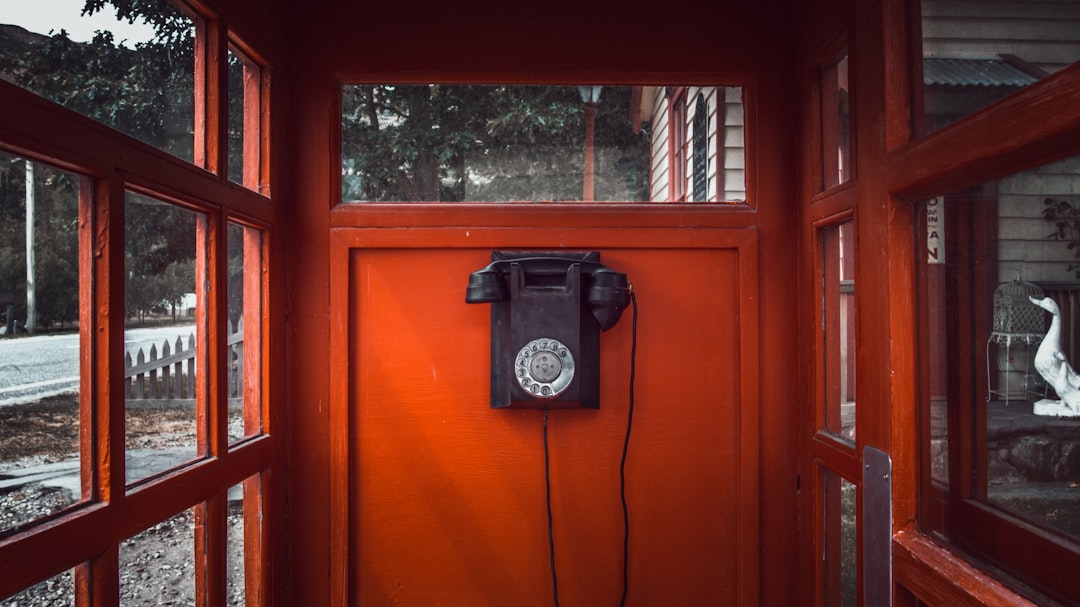Unwanted robocalls are a common problem, but Massachusetts residents have protections under the Telephone Consumer Protection Act (TCPA). If you've received harassing or unsolicited calls on Cape Cod, consult with a specialized spam call law firm to determine if you can sue for damages. Identify spam calls by pre-recorded messages, lack of personalization, and repeated calls; use blocking apps and register your number on the National Do Not Call Registry for prevention. Free consultations from Massachusetts spam call law firms can guide you through legal options, including suing over robocalls and seeking compensation for distress or financial losses.
“Tired of relentless robocalls cluttering your Cape Cod home? You’re not alone. Unwanted automated calls are a growing nuisance nationwide, including Massachusetts, where the Telephone Consumer Protection Act (TCPA) offers protections. Understanding your rights and effective prevention strategies is essential.
Learn how to identify spam calls, know if you can sue for robocalls in Massachusetts, and discover legal options with reputable spam call lawyers in our state. Take back control of your phone lines and explore the resources available to Cape Cod residents.”
Understanding Robocalls and the TCPA in Massachusetts

Robocalls, automated or pre-recorded telephone calls, have become a pervasive issue across the nation, including Cape Cod. While many robocalls are marketing or informational in nature, they can be a nuisance and even a source of fraud. In Massachusetts, these unwanted calls are regulated by the Telephone Consumer Protection Act (TCPA), which restricts how businesses may contact consumers by phone. The TCPA allows individuals to take legal action against companies that violate its provisions, especially when it comes to spam calls.
If you’ve received unwanted robocalls promoting products or services and are considering legal recourse, understanding your rights under the TCPA is crucial. In Massachusetts, a successful claim can lead to substantial compensation for each violation, making it viable to consult with a spam call law firm or spam call lawyers specialized in TCPA cases. These professionals can guide Cape Cod residents on whether they have a strong case, especially if the robocalls caused distress or led to financial loss, and help them navigate the process of suing for robocalls in Massachusetts.
Your Rights: Can You Sue for Robocalls in Massachusetts?

In Massachusetts, as in many other states, there are strict laws to protect residents from unwanted robocalls and spam calls. The Telephone Consumer Protection Act (TCPA) is a federal law that prohibits automated phone systems or artificial voices from calling individuals without their prior consent, except under specific circumstances. If you’re a Cape Cod resident receiving harassing or unsolicited calls, you have rights.
If these automated calls persist despite your efforts to stop them and you’ve suffered emotional distress or financial harm as a result, you may be able to take legal action. A spam call law firm or lawyer specializing in the TCPA can help you understand whether you can sue for robocalls in Massachusetts. These legal professionals can guide you through the process of filing a complaint with the Federal Communications Commission (FCC) and pursuing damages if appropriate.
Identifying Spam Calls: Recognizing Red Flags

Identifying spam calls is a crucial step in protecting yourself from unwanted robocallers. While some automated calls may be legitimate, recognizing certain red flags can help you discern whether a call is a nuisance or a potential legal issue. In Massachusetts, the Telephone Consumer Protection Act (TCPA) provides consumers with significant protections against unsolicited phone marketing calls, including spam calls. If you receive a call that exhibits any of these signs, it may be considered illegal:
– Pre-recorded Messages: One of the most common indicators is hearing a pre-recorded or artificial voice delivering a message. These messages are often used in robocalls and can be an invasion of privacy.
– Unsolicited Nature: Legitimate businesses typically obtain prior consent before making marketing calls. If you didn’t initiate contact with the caller and receive an automated call promoting products or services, it could be spam.
– Lack of Personalization: Spam robocalls often use generic greetings and one-size-fits-all scripts. A personalized message from a real person is less likely to be a spam call.
– Repeated Calls: Persistent and frequent calls from the same number, especially if they occur at odd hours, are a strong indication that you’re being targeted by a robocaller.
– Pressing for Immediate Action: Scammers often create a sense of urgency, urging recipients to respond immediately or face dire consequences. This tactic is designed to bypass critical thinking and can be a red flag.
– Unclear Caller ID: Be wary of calls with blocked or misleading numbers. Some robocallers manipulate their caller ID information to make it appear as a local number, when in reality, it’s from an out-of-state or even international location.
If you suspect you’ve been the target of spam calls and want to take legal action in Massachusetts, consulting with a reputable spam call law firm or lawyer for TCPA is recommended. They can guide you on potential remedies, including suing for damages under can I sue for robocalls Massachusetts laws.
Effective Robocall Prevention Strategies for Cape Cod Residents

Cape Cod residents, like many across Massachusetts, face a growing nuisance from unwanted robocalls. Fortunately, several effective prevention strategies can help reduce these intrusions. First, consider using approved call-blocking apps and devices that filter out known spam calls. These tools learn and adapt to block calls from recognized telemarketers and scammers. Additionally, registering your number on the National Do Not Call Registry is a crucial step; while it doesn’t guarantee a stop to all robocalls, it does make them less frequent.
For more robust protection, consulting with a specialized law firm can be beneficial. Experts in spam call laws, such as those practicing TCPA (Telecommunications Consumer Protection Act) law in Massachusetts, offer guidance on legal options. If you’ve experienced repeated or harassing robocalls, you may have grounds to take action. These lawyers can help determine if you can sue for robocalls in Massachusetts and navigate the process of seeking compensation or a court order to stop the calls. Remember, knowledge is power; understanding your rights and available resources is key to protecting yourself from unwanted phone marketing activities.
Legal Options: Finding a Spam Call Lawyer in Massachusetts

If you’re a Cape Cod resident tired of unwanted robocalls, you may have legal options. The Telephone Consumer Protection Act (TCPA) is a federal law designed to prevent exactly this type of nuisance calling. If a spam call lawyer in Massachusetts determines that your rights under the TCPA have been violated, you could be entitled to damages.
In Massachusetts, there are several reputable spam call law firms specializing in TCPA cases. These lawyers can help you understand if you can sue for robocalls and guide you through the process of seeking compensation for any distress or financial loss caused by unwanted telemarketing calls. Don’t hesitate to reach out; many law firms offer free consultations to discuss your options.






